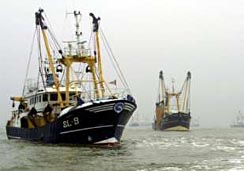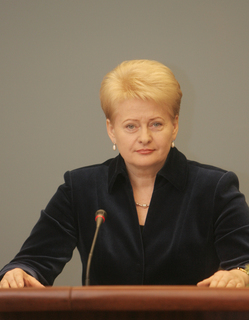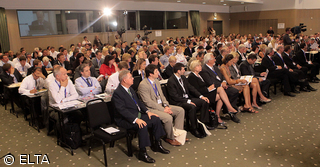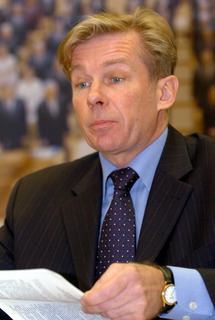Taxpayers in the quickly growing former communist state say rates are too high, but the Government complains that too many people and firms pay too little tax
Published:
16 November 2003 y., Sunday
When Michal, a 30-year-old financial manager at a large firm in Slovakia, set up a cultural foundation two years ago, he did not do it for the arts. He wanted to avoid paying tax.
Like tens of thousands of Slovaks the Government suspects of dodging their obligations, Michal went to great lengths to avoid paying the top tax rate of 38 per cent.
Taxpayers in the quickly growing former communist state say rates are too high, but the Government complains that too many people and firms pay too little tax, leaving it struggling to finance schools, roads and other projects and services.
That may soon be history because laws pushed through Parliament last month will introduce a flat 19 per cent income, corporate and value-added tax rate in January.
The Government hopes the new system will ease collection, stop rampant evasion and boost economic growth ahead of Slovakia's entry to the EU in May.
With a complex system that is strong on loopholes and weak on enforcement, Slovakia's 5.4 million people joke that avoiding and evading taxes is a national sport.
Leaders hope the reforms will replicate Russia's experience, where the Government set a flat rate of 13 per cent and watched revenue soar almost 40 per cent from 2000 to last year.
Šaltinis:
nzherald.co.nz
Copying, publishing, announcing any information from the News.lt portal without written permission of News.lt editorial office is prohibited.
The most popular articles
 A specific EU budget line for the new EU stabilisation mechanism should be created as soon as possible, to ensure its credibility, Council, Commission and Parliament negotiators agreed at a three-way meeting on Wednesday.
more »
A specific EU budget line for the new EU stabilisation mechanism should be created as soon as possible, to ensure its credibility, Council, Commission and Parliament negotiators agreed at a three-way meeting on Wednesday.
more »
 New EU rule will help phone-users avoid astronomical bills for web-surfing and downloads abroad.
more »
New EU rule will help phone-users avoid astronomical bills for web-surfing and downloads abroad.
more »
 The Communication approved today by the Commission builds on the principles presented on 12 May to reinforce the economic governance in the European Union.
more »
The Communication approved today by the Commission builds on the principles presented on 12 May to reinforce the economic governance in the European Union.
more »
 Eurostat report just published shows that the crisis has brought some lower taxes.
more »
Eurostat report just published shows that the crisis has brought some lower taxes.
more »
 New legislation is needed to ensure fair returns to farmers and transparent prices to consumers, by enforcing fair competition throughout the food supply chain, said Agriculture Committee MEPs on Monday.
more »
New legislation is needed to ensure fair returns to farmers and transparent prices to consumers, by enforcing fair competition throughout the food supply chain, said Agriculture Committee MEPs on Monday.
more »
 Fish imports play a crucial role in supplying the European market, yet fisheries and aquaculture are strategic sectors that do not lend themselves to a purely free-trade approach, believes the EP Fisheries Committee.
more »
Fish imports play a crucial role in supplying the European market, yet fisheries and aquaculture are strategic sectors that do not lend themselves to a purely free-trade approach, believes the EP Fisheries Committee.
more »
 I will support every proposal that strengthens cooperation among the European Union's Member States and serves Lithuania's interests," President of the Republic of Lithuania Dalia Grybauskaitė said at the meeting with EU Member States' ambassadors resident in Lithuania.
more »
I will support every proposal that strengthens cooperation among the European Union's Member States and serves Lithuania's interests," President of the Republic of Lithuania Dalia Grybauskaitė said at the meeting with EU Member States' ambassadors resident in Lithuania.
more »
 The fourth World Lithuanian Economic Forum “High tech innovation & investment: local to global” will start in London on 22 June.
more »
The fourth World Lithuanian Economic Forum “High tech innovation & investment: local to global” will start in London on 22 June.
more »
 Lithuania aims for the five Nordic countries and three Baltic States to become single community of values, which would be linked by a versatile quality of democracy, security and everyday life.
more »
Lithuania aims for the five Nordic countries and three Baltic States to become single community of values, which would be linked by a versatile quality of democracy, security and everyday life.
more »
 MEPs decided on Wednesday to create a special committee to prepare for the EU's next long-term budgetary framework.
more »
MEPs decided on Wednesday to create a special committee to prepare for the EU's next long-term budgetary framework.
more »